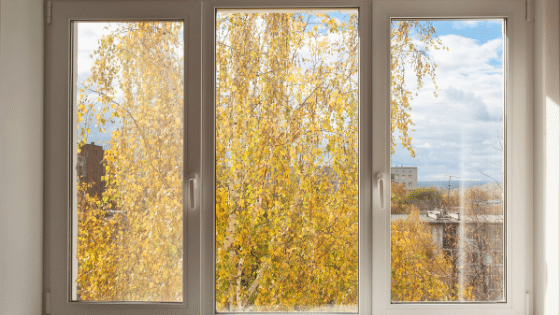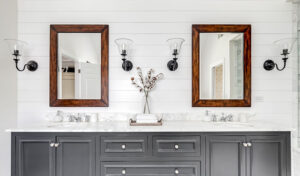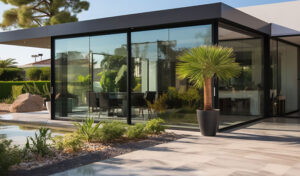Casement windows are windows that are attached to a frame by one or more hinges on the side. These windows open by tilting outward and offer great ventilation.
Double hung windows are possibly the most common window—these windows are made of two window panes and operate by moving up or down through a window frame.
In this post, we are sharing a comparative analysis including the pros and cons between Casement and Double Hung Windows.
Benefits of Double Hung Windows
Double hung windows are a very popular style and as such, comes in the widest variety of colors, styles, and materials. Wood and vinyl are the most popular choices, but there are plenty to choose from. Because this is a very common style, they are economically placed. This low-cost option leaves you with a budget to splurge in other places. There are also plenty of energy efficient options that provide homeowners with a chance to save big on their energy bills.
A double hung window has either the top or bottom panel of the windows that slide open to let air through a window screen. They offer great ventilation for your home. Double hung windows can easily accommodate window air conditioners. These easy to open windows provide for a great ventilation option. Some styles of double hung windows will tilt in, making them easy to open and easy to clean.
Cons of Double Hung Windows
Double hung windows are not the most airtight options. Casement windows are sealed much together and provide almost no air leaks. Whereas double hung windows often need weather-stripping to prevent air leaks. Air leaks mean a high energy bill and a drafty house.
Maintenance for double hung windows can be a little more demanding than other window types. You can extend your double-hung window’s lifespan by lubricating the tracks—making it easier to slide open and shut. It might get harder and harder to open. If it does become difficult to open, you may need to replace a spring.
Benefits of Casement Windows
Casement windows offer a variety of benefits, including great ventilation, energy efficiency, easy washing, and great quality. Since casement windows open outward, they let in plenty of fresh air and catch side breezes, sending them through your house and ventilating it. Casement windows open fully and allow for great cross breezes and a home full of fresh air.
These windows are the most energy-efficient type of window. When casement windows close, they seal completely. Because of this, they keep out any unwanted breezes and keep your house from getting drafty. They will also keep air that you paid to heat or cool in your house—bringing down your energy bills. If you live in an especially windy area, casement windows will be very beneficial for your house.
Cons of Casement Windows
There are many benefits to casement windows, but this means that they are often a more expensive option. Casement windows are high quality and they are not cheap. There are also size limitations with casements, it’s very rare to see very large casement windows.





